Work and Life is a radio program hosted by Stew Friedman, director of the Wharton Work/Life Integration Project, on Sirius XM’s Channel 111, Business Radio Powered by The Wharton School. Every Tuesday at 7:00 PM EST, Stew speaks with everyday people and the world’s leading experts about creating harmony among work, home, community and the private self (mind, body and spirit).
On Work and Life, Stew Friedman spoke with Sam Polk, a former trader for CSFB, the head distressed trader for one of the largest hedge funds in the world who left Wall Street because he wanted to live a more meaningful life, founding Groceryships, a non-profit that helps low-income families struggling with obesity, about what it takes to break addictive habits that keep you from leading the life you want and bringing your heart and soul to your work and career.
Listen to the complete podcast.
Stew Friedman: Sam, I learned about you when you wrote a much-talked about opinion piece in the New York Times For the Love of Money. You described your evolution for Wall Street hedge fund trader earning $3.6M in bonus money at age 30 (and being disappointed with the small size of the bonus), your confrontation with your addiction, as you called it, to money, and your scary decision to leave this lucrative, but for you, empty and deadening life. You ultimately founded GroceryShips, a company that feeds the hungry. The reason I wanted to talk with you is that your story is such a compelling (and extreme) example of someone who was able, through a crucible, to find a way to truly live an integrated life. Can you share with our listeners your story?
Sam Polk: 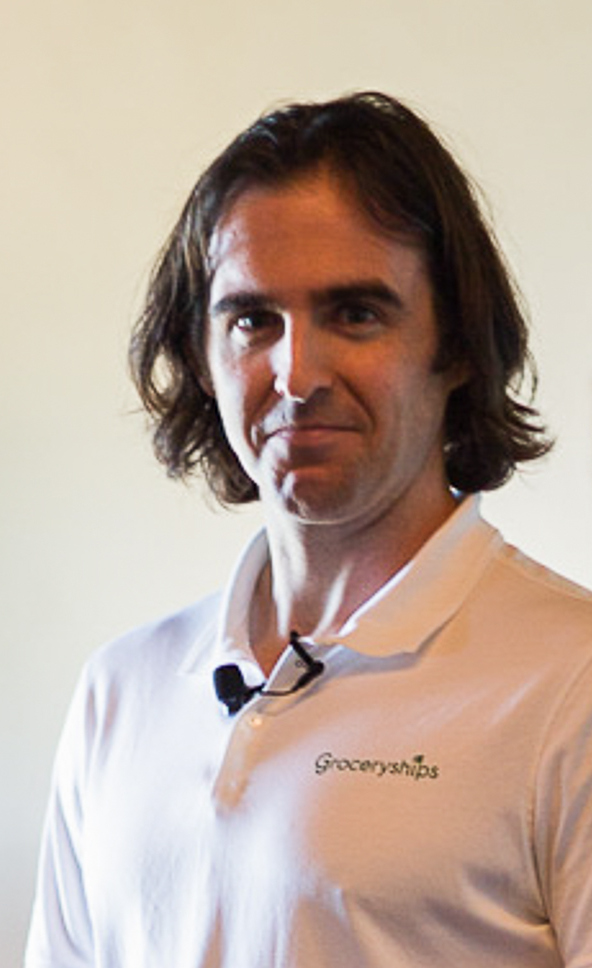 I went to Wall Street when I was 22 years old, just out of Columbia. I remember going onto the trading floor and everything I wanted in life was right there. I grew up sort of middle class. My dad read about successful businessmen in the paper every day and being successful was ingrained in me. When I walked onto the trading floor, I could tell just by looking at the clothes people wore – their haircuts, their suntans (you could tell they played golf) – that I’d never seen people as wealthy as this. And it was everything I wanted.
I went to Wall Street when I was 22 years old, just out of Columbia. I remember going onto the trading floor and everything I wanted in life was right there. I grew up sort of middle class. My dad read about successful businessmen in the paper every day and being successful was ingrained in me. When I walked onto the trading floor, I could tell just by looking at the clothes people wore – their haircuts, their suntans (you could tell they played golf) – that I’d never seen people as wealthy as this. And it was everything I wanted.
After the article I got hundreds of letters from college kids more or less asking me to help them get a job on Wall Street.
SF: But wait, the article was about you leaving Wall Street because you found that it wasn’t meeting your inner needs, though it was more than meeting your financial needs. And they were asking you to help them get jobs on Wall Street?!
SP: I understand why. They hear that success is all about being rich, powerful or famous and these kids are insecure, they don’t have any of these things. I was like that at 22 and just graduating. They’re getting strong cultural messages. I think 3% of our cultural dialogue says “don’t be a money lender” and “money doesn’t bring happiness,” but 97% says “get as much money as you can, as quickly as you can” and Wall Street is the place for that. I feel compassion for these college kids, the culture says you’re important if you start a tech company and make a $1M.
I had a black car waiting for me when I landed, I went to countless World Series games, sat in the 2nd row at the Knicks games whenever I wanted. It’s a tremendous feeling of power. I was living the life. Making money feels good. You come home and show your girlfriend, “look at this, I’m proud of this.”
The college kids want to be Lloyd Blankfein (CEO and Chairman, Goldman Sachs). I was like that. They feel envy and I did too. No matter how many millions I made. Trading was the coolest thing in the world. So I understand why these college kids are writing to me wanting to be on Wall Street and hoping I’ll be able to help them get a job there.
SF: So what happened? What changed for you? Why did you give it all up? Was there a moment? An epiphany?
SP: I began to realize that the stuff I was doing every day didn’t matter, even though I was being so well compensated. There were so many moments including one during the hedge fund crisis. Other brokers were against any new regulations on the industry, and I said, in a meeting in front of my boss, “but isn’t this better for the system as a whole.” And my boss said, “I can only think about what’s good for our company.” My dream was to a billionaire; a billionaire was a hero. The fact that my boss (who was a billionaire) was self-seeking made me realize that there was no end point. I have enough, let me go do what I was meant to do.
Kids wrote saying, “I just want to travel, take care of my family, I just want $6M.” I don’t have that. And most people don’t. If you get to $6M, you want $12M. Money, power and prestige fill that hole.
SF: So, what about that void that you wrote about? You weren’t able to truly bring your whole self to work as a hedge fund trader, but now your personal passions fuel your work.
SP: I was trying to fill this hole inside me, this sense of worthless. The only way I thought I was valuable was Columbia, millions of dollars, a big loft apartment on Bond Street; those things you get when you are on Wall Street. Then I realized the hole is still there. We have this brief life and if you play out the Wall Street story all the way, you get $100M and the world thinks he’s successful. But he’s spent his whole life getting money and accolades for himself.
SF: So how did you get out?
SP: I had a spiritual teacher, a Native American women, for whom I more grateful than anything I can imagine. Three weeks into first internship I was dating this girl so out of my league; I was punching outside of my weight class. She dumped me three weeks in. First love. I didn’t see it coming. It was a devastating heartbreak. I could barely eat or get out of bed. But I had this internship, and besides this girlfriend, that was the most important thing to me at the time. I needed help. This girlfriend had brought me in to couples counseling with this Native American spiritual teacher who was the only counselor I knew. I went every week. No Ph.D. No Ivy League. No thank you, was what I thought then. She had a completely different perspective from the one on Wall Street which was all about hierarchy, bigger, and more being valuable and important. Wall Street was all about the chase to get the top. And she said, “No, there is no hierarchy. We are all equally valuable and that the value of the life is in the inner character, not in outside achievements. It’s about treating people with compassion.” I thought she was wacko. I wanted to know how can I get over the breakup so I can make money. At the beginning I believe her 10% of the time and I believed in the Wall Street philosophy 90% of the time. But over 8 years it shifted, little by little until the balance went in the other direction; I believed her philosophy 90% and I believed in Wall Street’s 10%. It was like in The Matrix, taking a red pill and seeing how the world really is. On Wall Street people refer to other people by the size of their bank account; he’s a $100Millionaire. Money is the signifier.
SF: So, what happened when you left?
SP: I left when I was 30 and it was the hardest thing I’d ever done until then. (I know other people have it harder in life, but for me, that was the hardest thing I’d done.)
SF: What was the reaction?
SP: I heard, “I’m sorry you’re leaving. I think y could have made a lot of money”
SF: A bonus of over $3.5M was not already a lot of money?
SP: I had to give back half that year’s the bonus because I left. I gave up almost $2M to walk away. And I was in contention to be head of trading. I’d been so focused on making money my whole life. A lot of people didn’t agree. My Dad didn’t agree. But I didn’t seek his counsel. There were different cultural values. My Dad was this guy focused on money and on himself and his extra-curriculars and not on me. As a kid I was desperate to impress him. Wall Street and my bosses were my dad. I was trying to impress my boss.
SF: So how’d you go from there to founding GroceryShips? And what is GroceryShips?
SP:GroceryShips is a health program for low income folks struggling with obesity. We go into a community, get applications from families, select 10 families who will receive food scholarships. We provide healthy cooking classes, emotional support groups, education about food, how to read labels, how to manage stress, deal with mental health, talk about childhood trauma if it’s affecting emotional eating. And we provide incentives. For example, if you and your family eat 5 fruits or vegetable a day or lose weight, we provide money for healthy food. The support for these folks comes not just from GroceryShips but from each other.
SF: How did you come up with this idea?
SP: My family struggled with obesity. Two people in my family had bariatric surgery (stomach stapling). I went in the other direction with wrestling. But food was always in issue in my life. When I walked away from Wall Street one of the things that I was able to see is that in this hierarchy we on Wall Street we step over people as we strive to get to the top. There’s waste in their backyards, highways in their neighborhoods; these folks are seen as not as valuable to those of us on Wall Street. I spent my whole life climbing the rungs. And, of course, obesity exists in wealthy communities, but it mostly affects the poor. Groceryships focuses on equality, not hierarchy, and on reciprocity. We focus in people who need help, but we treat them as equals, with total respect. Reciprocity is the structure of the organization. We’re a non-profit with an extensive nutrition and health curriculum. We’re expanding into corporate wellness, and using those earnings to pay for low income in surrounding areas.
SF: Why would an organization hire Groceryships for their wellness programing? What do they get out of it?
SP: if they’re looking for a wellness program, we’ll bring one plus their money will go to low income communities in their surrounding areas. I believe that people are good and if you are faced with two choices and one has a social good component and it’s good public relations, then it’s an easy choice. Companies use Groceryships both for corporate wellness and for civic engagement and for P.R.
SF: The changes you’ve made in your work and your life are quite dramatic. What advice do you have for others?
SP: First,Wall Street is not evil; it’s just that something was missing in my life. I now haveintegrity in the way of everything works together. I work just as hard, but all with one thing in mind. I’m living a life in line with my principles. My life not perfect. But there is no dissonance inside me.
When I left most people congratulated me, and said that they wished that they could do the same, but that they couldn’t do it yet. The idea is that they’ll do it as long as they can, to get the most money out of it before they can move on to what they really want to do.
So, I say to others: Respect where you are. It’s hard to make a change like this. If graduate from Wharton, for example, you can expect to make more than $400K/year in the next few years and then maybe about $3M or more per year if you go to Wall Street. That’s the straight and narrow, “right” path. The left side is path you can’t see. Inside every one of us is the unique compilation, the one path that no one has taken before. It’s your gift to the world. You can’t go right way, but you have to go left. I made one huge trade that combined all my years of training, education and experience and expertise and in one trade I made $5M and I thought that with all these gifts, and talents, and opportunities, I could be doing something else. Take your Goldman Sachs or take a different path.
SF: What is your gift to bring to the world? How can you ask for help? How can you explore and learn about other paths that will help you lead the life you want?
Sam Polk is the Founder and Executive Director of Groceryships, a former trader for Bank of America and the head distressed trader for one of the largest hedge funds in the world. After eight years on Wall Street, he left because he wanted to live a more meaningful life. He founded Groceryships, a non-profit that helps low-income families struggling with obesity. In January 2014, he published an OpEd about money addiction on the front page of The Sunday Review section of The New York Times. To learn more, go to www.Groceryships.org and follow on Twitter @GroceryShips, and Sam on @SamPolk
Join Work and Life at 7:00 PM ET on Sirius XM Channel 111. Visit Work and Life for a full schedule of future guests and a roster of past guests.
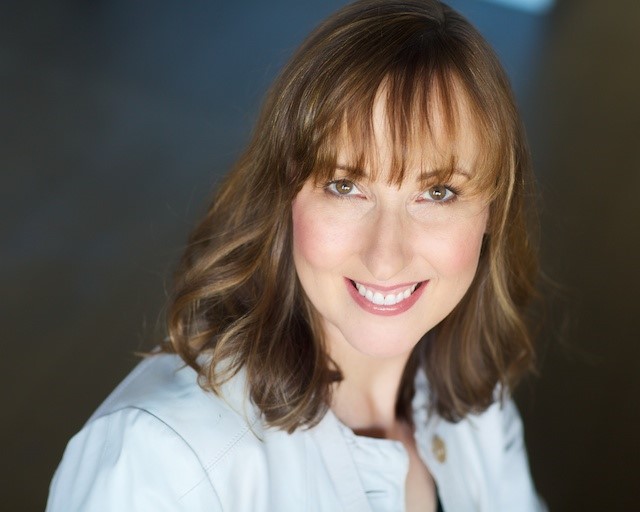 As you know, Stew, it really has to do with giving people a simple framework to begin to think through how their work and life fit together and helping them be as intentional as they can about that fit, both day-to-day as well as through major life transitions. It starts with understanding what flexibility is available in their lives and what makes sense for their jobs, and then within that context, thinking about what they could do to be, work, and live smarter and better. One of the most fascinating things I’ve seen in my work is an ongoing struggle to get people to understand that there’s more that they could do to live better.
As you know, Stew, it really has to do with giving people a simple framework to begin to think through how their work and life fit together and helping them be as intentional as they can about that fit, both day-to-day as well as through major life transitions. It starts with understanding what flexibility is available in their lives and what makes sense for their jobs, and then within that context, thinking about what they could do to be, work, and live smarter and better. One of the most fascinating things I’ve seen in my work is an ongoing struggle to get people to understand that there’s more that they could do to live better.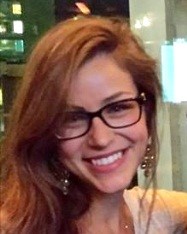 is a rising undergraduate senior in the Huntsman Program in International Studies and Business at Penn focusing on Management and Latin America.
is a rising undergraduate senior in the Huntsman Program in International Studies and Business at Penn focusing on Management and Latin America.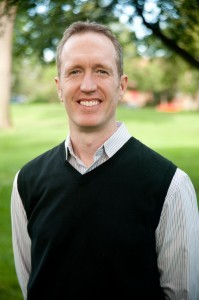 For one, I have come to the realization that work and play are not opposites – they are complementary. It’s certainly not the case that you could have a workplace that resembles the playground during recess, for example, because nothing would get done, but there’s good evidence that humor complements many of the things you want to get done in the workplace. One thing, for instance, is that people want to enjoy where they work. Good predictors of workplace retention are questions like – Do you have a best friend at work? Do you have a good relationship with you supervisor? Those kinds of things are facilitated by being able to have a good time and being able to have some fun. Workplaces are often stressful places, so being able to enjoy a few jokes along the way can help us get through the difficult times. Some of the work that we’ve been doing in the Humor Research Lab looks at “humor as complaining.” You take a situation that you are trying to complain about and instead you make humorous complaints about it. That tactic seems to be largely beneficial, especially when it comes to the idea of having other people support you.
For one, I have come to the realization that work and play are not opposites – they are complementary. It’s certainly not the case that you could have a workplace that resembles the playground during recess, for example, because nothing would get done, but there’s good evidence that humor complements many of the things you want to get done in the workplace. One thing, for instance, is that people want to enjoy where they work. Good predictors of workplace retention are questions like – Do you have a best friend at work? Do you have a good relationship with you supervisor? Those kinds of things are facilitated by being able to have a good time and being able to have some fun. Workplaces are often stressful places, so being able to enjoy a few jokes along the way can help us get through the difficult times. Some of the work that we’ve been doing in the Humor Research Lab looks at “humor as complaining.” You take a situation that you are trying to complain about and instead you make humorous complaints about it. That tactic seems to be largely beneficial, especially when it comes to the idea of having other people support you. My family immigrated to America from the former Soviet Union in 1976. We were refugees and settled in Chicago. Through their entrepreneurial spirit, my parents founded a Russian food deli that eventually led to Lifeway Foods. They took the company public in 1988. For them, there was no work-life balance. I think it’s a nice luxury to be able to talk about it when you have all the resources and networks like we do now, but for an immigrant family it’s a little bit of a different conversation. My dad worked seven days a week. There were times when I really didn’t see him for months on end, because I’d go to sleep and he’d still be working, and I’d wake up and he’d already left for work. I saw my parents sacrifice quite a bit.
My family immigrated to America from the former Soviet Union in 1976. We were refugees and settled in Chicago. Through their entrepreneurial spirit, my parents founded a Russian food deli that eventually led to Lifeway Foods. They took the company public in 1988. For them, there was no work-life balance. I think it’s a nice luxury to be able to talk about it when you have all the resources and networks like we do now, but for an immigrant family it’s a little bit of a different conversation. My dad worked seven days a week. There were times when I really didn’t see him for months on end, because I’d go to sleep and he’d still be working, and I’d wake up and he’d already left for work. I saw my parents sacrifice quite a bit. Alice Liu is an undergraduate senior studying Management at The Wharton School and English (Creative Writing) at the College of Arts & Sciences.
Alice Liu is an undergraduate senior studying Management at The Wharton School and English (Creative Writing) at the College of Arts & Sciences.  Liz Stiverson is a 2014 MBA candidate at The Wharton School.
Liz Stiverson is a 2014 MBA candidate at The Wharton School.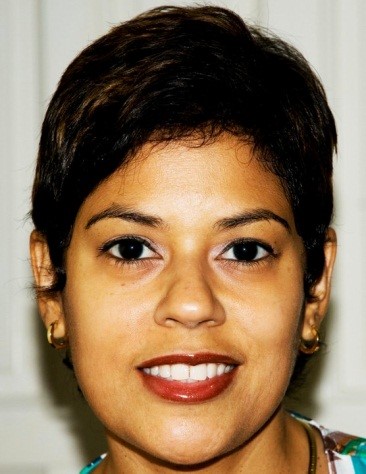 The inspiration for Do Good Jamaica started with a book drive. There’s a very big problem with our education system in Jamaica. Although we have a national library system that serves every community through branch libraries and mobile libraries, and there are reading programs for children, they didn’t have enough of the proper books. I thought, “Jamaicans love to break records – with Usain Bolt and Shelly-Ann Fraser-Pryce, we have the fastest man and the fastest woman in the world – so if I say, ‘Let’s break a Guinness record,’ I’ll get tons of books.” It worked – the world record was 242,624 books raised in seven days; we smashed that in the first day, and ended up with 657,061books in seven days. I was so inspired by the hundreds of organizations and hundreds of thousands of individuals that participated. It was fascinating to see how everyone could focus on a single goal and get somewhere.
The inspiration for Do Good Jamaica started with a book drive. There’s a very big problem with our education system in Jamaica. Although we have a national library system that serves every community through branch libraries and mobile libraries, and there are reading programs for children, they didn’t have enough of the proper books. I thought, “Jamaicans love to break records – with Usain Bolt and Shelly-Ann Fraser-Pryce, we have the fastest man and the fastest woman in the world – so if I say, ‘Let’s break a Guinness record,’ I’ll get tons of books.” It worked – the world record was 242,624 books raised in seven days; we smashed that in the first day, and ended up with 657,061books in seven days. I was so inspired by the hundreds of organizations and hundreds of thousands of individuals that participated. It was fascinating to see how everyone could focus on a single goal and get somewhere.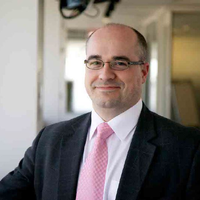 Trying to figure out how to allocate our scarcest resource – time – is a challenge. I think one of the ways I juggle it all is to continually step back to self-reflect – take a look at the situation, engage with those people I care about, and ask for their opinion. Both with my job and with my household, I think we’ve established a habit of honest and intentional communication.
Trying to figure out how to allocate our scarcest resource – time – is a challenge. I think one of the ways I juggle it all is to continually step back to self-reflect – take a look at the situation, engage with those people I care about, and ask for their opinion. Both with my job and with my household, I think we’ve established a habit of honest and intentional communication.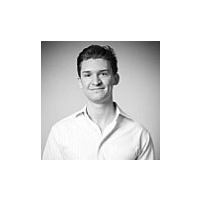 Total Leadership really teaches you how to define what success means to you. In the path leading up to becoming a Wharton undergraduate, the next step is always prescribed for you – here’s what you have to do to advance to the next level, here’s what you have to do to get a certain mark in a class. The hurdles are very clear. I found myself after graduation in a highly coveted management consulting job where, again, the hurdles are very clear. But at some point, because I had done all this introspection and all this work in Total Leadership, I realized that those benchmarks weren’t the benchmarks by which I wanted to use to measure my own success. I realized that I was stressing out about benchmarks that don’t actually matter to the people who matter most to me. So I started to think, “How can I change this situation so that I’m able to live a life that’s successful by my own terms?” I started by clarifying what risks I was willing to take. I struck out on a new job hunt, and instead of taking the job that seemed like a continuation of the path that I was already on, I ended up interviewing in the marketing field, which felt better aligned with my values. I knew that even if this choice was going to decrease my long-term earning potential, this was a place where I could feel successful based on how I define success.
Total Leadership really teaches you how to define what success means to you. In the path leading up to becoming a Wharton undergraduate, the next step is always prescribed for you – here’s what you have to do to advance to the next level, here’s what you have to do to get a certain mark in a class. The hurdles are very clear. I found myself after graduation in a highly coveted management consulting job where, again, the hurdles are very clear. But at some point, because I had done all this introspection and all this work in Total Leadership, I realized that those benchmarks weren’t the benchmarks by which I wanted to use to measure my own success. I realized that I was stressing out about benchmarks that don’t actually matter to the people who matter most to me. So I started to think, “How can I change this situation so that I’m able to live a life that’s successful by my own terms?” I started by clarifying what risks I was willing to take. I struck out on a new job hunt, and instead of taking the job that seemed like a continuation of the path that I was already on, I ended up interviewing in the marketing field, which felt better aligned with my values. I knew that even if this choice was going to decrease my long-term earning potential, this was a place where I could feel successful based on how I define success. Before Total Leadership, I felt passionate all the time but I didn’t know why I was passionate or what my purpose was. I found that I was aggressively and ambitiously looking for results rather than engaging with the stakeholders in the four domains in my life. After learning Total Leadership, I now feel like I have a gyroscope that tells me where my center of gravity is.
Before Total Leadership, I felt passionate all the time but I didn’t know why I was passionate or what my purpose was. I found that I was aggressively and ambitiously looking for results rather than engaging with the stakeholders in the four domains in my life. After learning Total Leadership, I now feel like I have a gyroscope that tells me where my center of gravity is.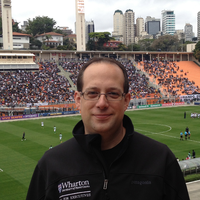 Total Leadership has allowed me to have many different conversations with the key important people – the stakeholders – and one of the things that I’ve learned is that you have to approach different relationships in different ways. Some of the changes you want to make may be more immediate but for the longer-term changes, if you can define what you want your life to look like, then you can start working backwards and plant the seeds for a better solution in the future.
Total Leadership has allowed me to have many different conversations with the key important people – the stakeholders – and one of the things that I’ve learned is that you have to approach different relationships in different ways. Some of the changes you want to make may be more immediate but for the longer-term changes, if you can define what you want your life to look like, then you can start working backwards and plant the seeds for a better solution in the future. Alice Liu is an undergraduate senior studying Management at The Wharton School and English (Creative Writing) at the College of Arts & Sciences.
Alice Liu is an undergraduate senior studying Management at The Wharton School and English (Creative Writing) at the College of Arts & Sciences.